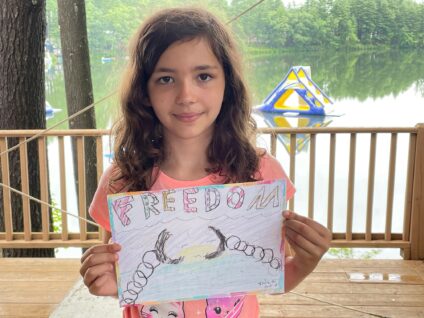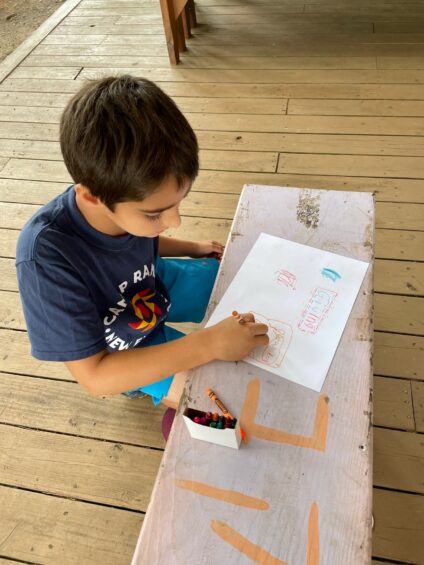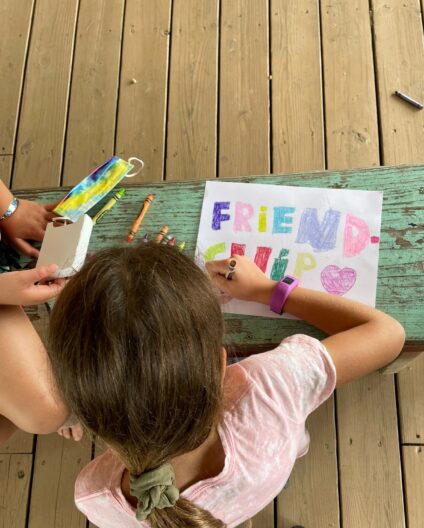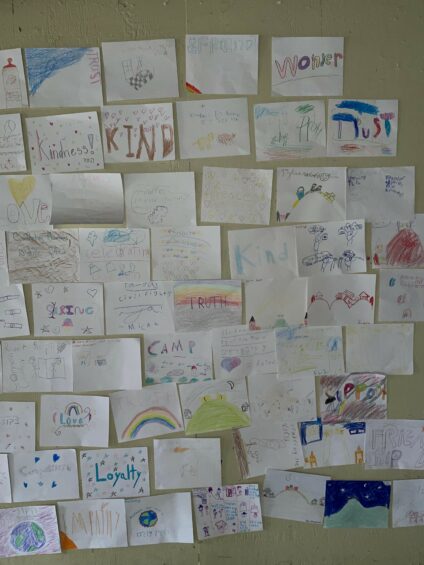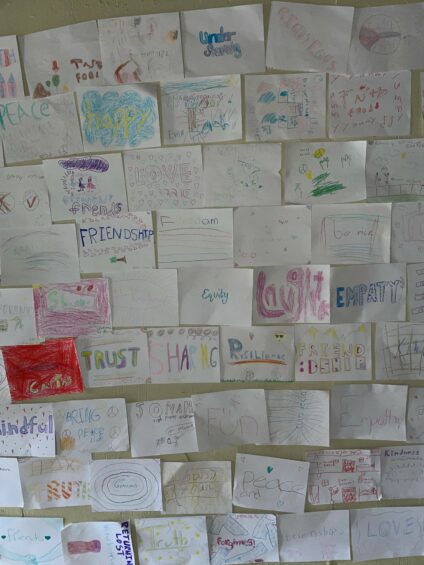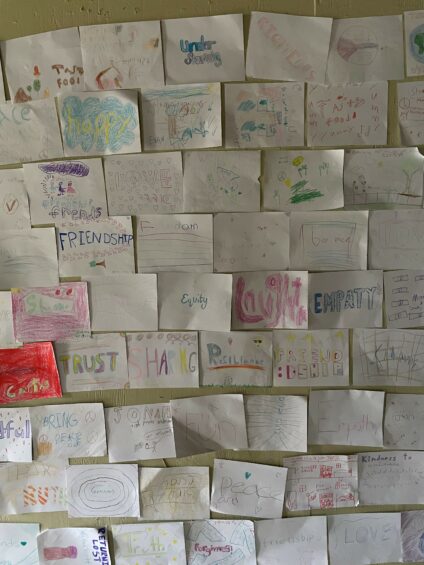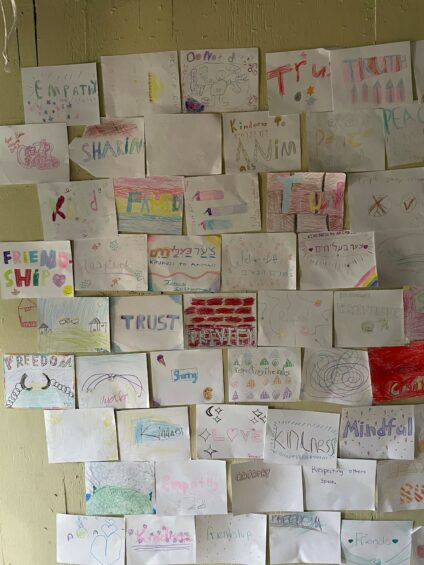A Tisha B’Av Lesson: Creating a Mikdash Me’at, a small space of holiness, by Tami Arnowitz
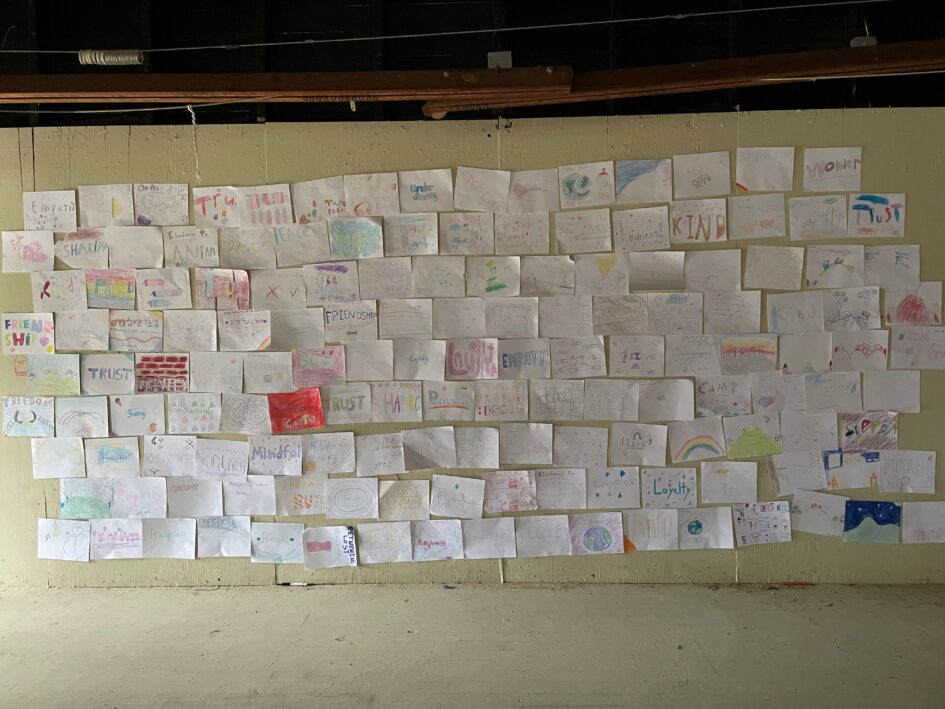
The Limud (learning) team did a special activity with Tzad Aleph (A-side) campers to mark the holiday of Tisha B’Av. Starting on Saturday night, each tzrif (bunk) was given materials to do a harga’ah (bedtime process) about Tisha B’av. Chanichim (campers) had a chance to hear Eli Tzion and hear this story:
Two brothers had each inherited half of their father’s farm. One of the brothers was married and had a large family; the other brother was single. They lived on opposite sides of a hill.
One night during harvest time, the single brother tossed about in bed. “How can I rest comfortably and take a full half of the harvest, when my brother has so many more mouths to feed?” So he arose, gathered bushels of produce and quietly climbed the hill to bring them over to his brother’s barn.
Meanwhile, his brother across the hill also could not sleep. “How can I enjoy my full share of the produce and not be concerned with my brother. He is alone in the world, without a wife or children; who will support him in his old age?” So he arose in the night and quietly brought over bushels of produce to his brother’s barn.
When the next morning dawned, each brother was surprised to find that what they had given away had been replenished. They continued these nighttime treks for many nights. Each morning they were astounded to find that the bushels they had removed had been replenished.
Then one night it happened. The brothers met on the top of the hill during their evening adventure. And there, they embraced.
G‑d looked upon this expression of kindness and love and said, “On this spot of mutual love I wish to dwell. Here My Holy Temple will be built.”
The next day in group discussions, the Limud team and chanichim talked about how the Temple was destroyed because of sinat chinam (baseless hatred), but then focused on the story of the brothers they had heard the night before and how the kindness, caring and love that was shown was the inspiration for where the Temple would be built. The team introduced the idea that through this kind of caring behavior we can create a Mikdash Me’at, (a small space of holiness), in our tzrifim, our machane (camp), our homes and our communities. Campers shared stories and examples where they felt special, sacred moments brought on by kindness. There were great stories about friends helping to return lost water bottles and other items, madrichim (counselors) making sure a chanich with allergies had the right foods to eat, a new friend showing a first time chanich around camp, and holding hands during a thunderstorm. Finally, chanichim were asked to choose a value that they felt was important to building a good community. They then wrote that value on a “brick” and decorated it. All the “bricks” were put together to build an art installation to symbolize how to build a mikdash me’at, a strong foundation for a good community.
